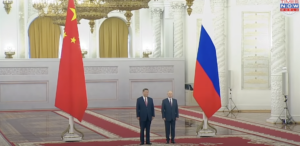Briefly: The members of a major Trans-Pacific trade bloc (the Comprehensive and Progressive Agreement for Trans-Pacific Partnership – or CPTPP) agreed to approve the UK’s membership application yesterday (Wednesday).
Some context: The CPTPP has 11 members which together represent a $10 trillion market with 500 million people. That’s nearly 14% of global GDP. The UK will become member #12, and the first new member since the CPTPP was signed in 2018.
Impressive right? Yet the economic benefits for the UK will be negligible:
Stay on top of your world from inside your inbox.
Subscribe for free today and receive way much more insights.
Trusted by 127,000+ subscribers
No spam. No noise. Unsubscribe any time.
- The UK already has trade deals or ‘EU rollover agreements’ with nine of the eleven CPTPP members
- The two new CPTPP markets for the UK are Brunei (similar population to Manchester) and Malaysia
So, by the UK’s own estimates, the CPTPP will boost British GDP by just 0.08% over the long term. By comparison, leaving the neighbouring $16 trillion EU bloc is estimated to cost the UK a 4% drop in GDP over the long term.
So why bother joining the CPTPP?
🗳️ Politics: Brexit has failed to deliver on many of the promises made by its proponents. So joining the CPTPP can be badged as a rare Brexit win.
🌏 Geopolitics: As a CPTPP member, the UK gets a veto over any new members. And China is next in line. So the CPTPP effectively gives the UK rare leverage over China. This adds weight to the UK’s new “Indo-Pacific Tilt”, which seeks to better position the UK in the key region.
📈 Getting in on the ground floor: As other major Indo-Pacific economies look to join the CPTPP (see below), the benefits for the UK will grow. Though that’ll take time (and will still be dwarfed by the costs of Brexit).
Intrigue’s take: The CPTPP was never really about trade. President Obama’s original aim was to form an economic bloc to balance China. But President Trump ended up withdrawing the US on his third day in office. And now China is trying to join. It feels about as repetitive as an episode of Days Of Our Lives.
Still, it’s nice to hear the faint sounds of champagne bottles being opened at 10 Downing Street (without triggering years of investigations).
Also worth noting:
- China, Taiwan, South Korea, Indonesia, Philippines, Thailand and Ecuador have all voiced an interest in joining the CPTPP.
- Canada has played a spoiler role twice in the CPTPP: the original deal almost collapsed in 2017 when Canada “screwed everybody”, and Canadian objections delayed the UK’s membership application earlier this month.







